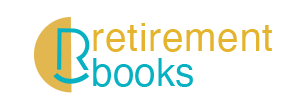Ever wondered what skills you have to offer a prospective new employer? OK so the obvious ones related to a specific profession, trade or industry that you work in are easy. You’re an accountant or a plumber or in sales in pharmaceuticals, so the specific skills there are obvious. I don’t have to spell that out for you.
What happens though, if you decide – I want to do something different? I want to change profession, trade or industry – what then? How do I present my skills when moving in a new direction?
Ever wondered what skills you have to offer a prospective new employer? OK so the obvious ones related to a specific profession, trade or industry that you work in are easy. You’re an accountant or a plumber or in sales in pharmaceuticals, so the specific skills there are obvious. I don’t have to spell that out for you.
What happens though, if you decide – I want to do something different? I want to change profession, trade or industry – what then? How do I present my skills when moving in a new direction?
Once you find out what you have to do to re-train or get qualified (if required) in your new area of interest or employment (see my notes on How do I re-train?) then you start to look for a job. The first thing that will probably happen is the prospective employer will say “Ah, I see you used to do (fill in the old role) and you’ve recently qualified in (fill in the new role). That’s great but unfortunately you have no experience in this (new) field and I’m not sure how your old job experience would benefit the company.”
This is a legitimate response from an employer, but a smart employer would ask “What skills can you bring to the role, if I give you an opportunity to start with us and learn the new job?”
This is where you need to have your skills listed and an answer ready to capitalise on the opportunity. So what sort of skills can you identify that will add to your merit in applying for a job?
Let’s run through the sort of things you need to assess and list.
Computer (IT) Skills:
- Ability to operate a computer – PC and / or Macintosh (Apple Mac)
- Able to access the internet and use e-mail
- Knowledge of standard software packages – Microsoft Office (Word, Excel, PowerPoint, Access and Publisher mainly) or other
- Knowledge of specialist or proprietary software – MYOB, QuickBooks, Sybiz, Adobe, Corel, Front Page, ACT or other database products and customised ‘inhouse’ software etc
N.B. You need to be objective about your level of competence with each and every item you can use above – e.g. beginner, intermediate or advanced.
People Skills:
- Have you managed staff and if so how many?
- Have you worked in a team(s) or on your own?
- Have you lead a team?
- Have you been a trainer or mentor to peers and / or subordinates?
- Have you had to counsel staff or effect conflict resolution between staff members?
- Have you handled customer complaints?
N.B. All these answers speak to your people handling and leadership skills.
Communication Skills:
- Ability to present information in written or report format
- Ability to present verbal information – sales presentation, technical or training presentation or management information to a Board of Directors
- Skills of persuasion used in a previous sales role or change management role
Time Management Skills:
- Ability to work to deadlines and deliver in full on time (IFOT)
- Ability to prioritise work to allow the most important work take precedence over other less mportant / critical tasks
- Demonstrate flexibility when thrown challenges unexpectedly
- Demonstrate ability to retain focus on task completion when faced with conflicting demands
- Punctuality
Technical Skills:
- Higher education is a pointer to your ability to learn new technical skills or information, as is a previous job of a technical nature (even without the education)
- Ability to learn new information or tasks, whether of a technical nature or not
- Indication of problem solving ability
Creativity Skills:
- Ability to create items of an artistic or technical nature
- Ability to design new processes or procedures
- Ability to design new products or services
- Ability to think ‘outside the square / nine dots’ is a great asset when joining a new company, as your lateral approach could solve age old issues
Once you have created your list of saleable skills, get an objective review from someone who knows you well enough, in either the workplace or socially, to sensibly review your list. Remember – it is far better to understate your talent and skills and impress with the unexpected extra benefits, than to overstate them and be caught out lacking some or all of the skills you claim to have.
TIP – Always take this list of skills with you to an interview, so you can either present them as a list, talk to them or prompt your memory in specific areas when asked what skills you have to offer.
Finally never let anyone tell you that skills are not transferable from industry to industry. This is only true for specific industry or professional skills, but virtually all the ones we have discussed are transferable. They are relevant to any position in any industry!
Ron Browne
Director
PLUS40 Pty Ltd

